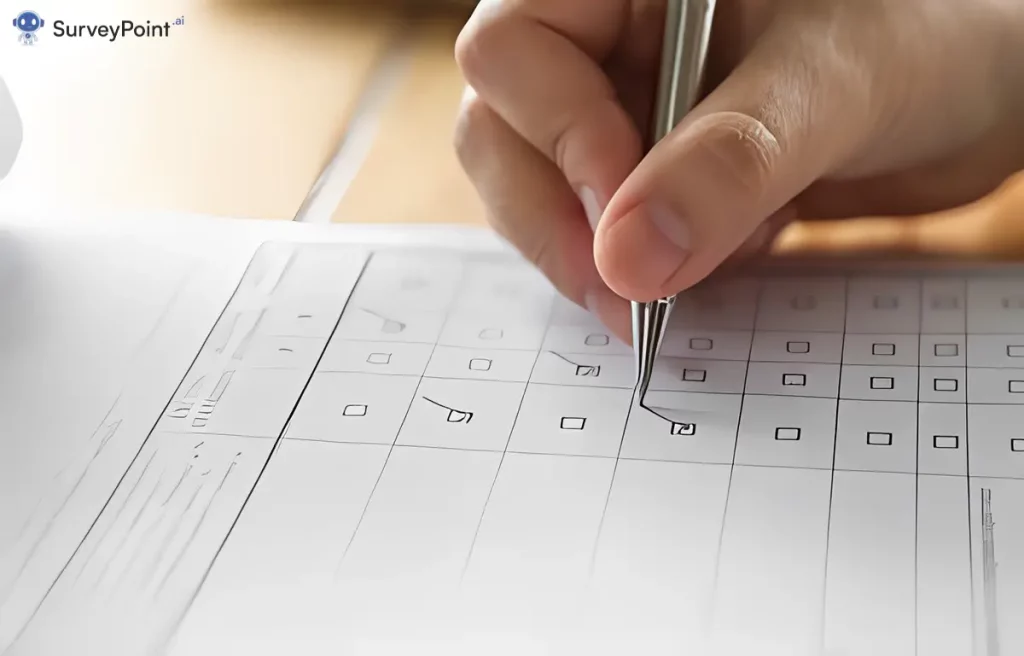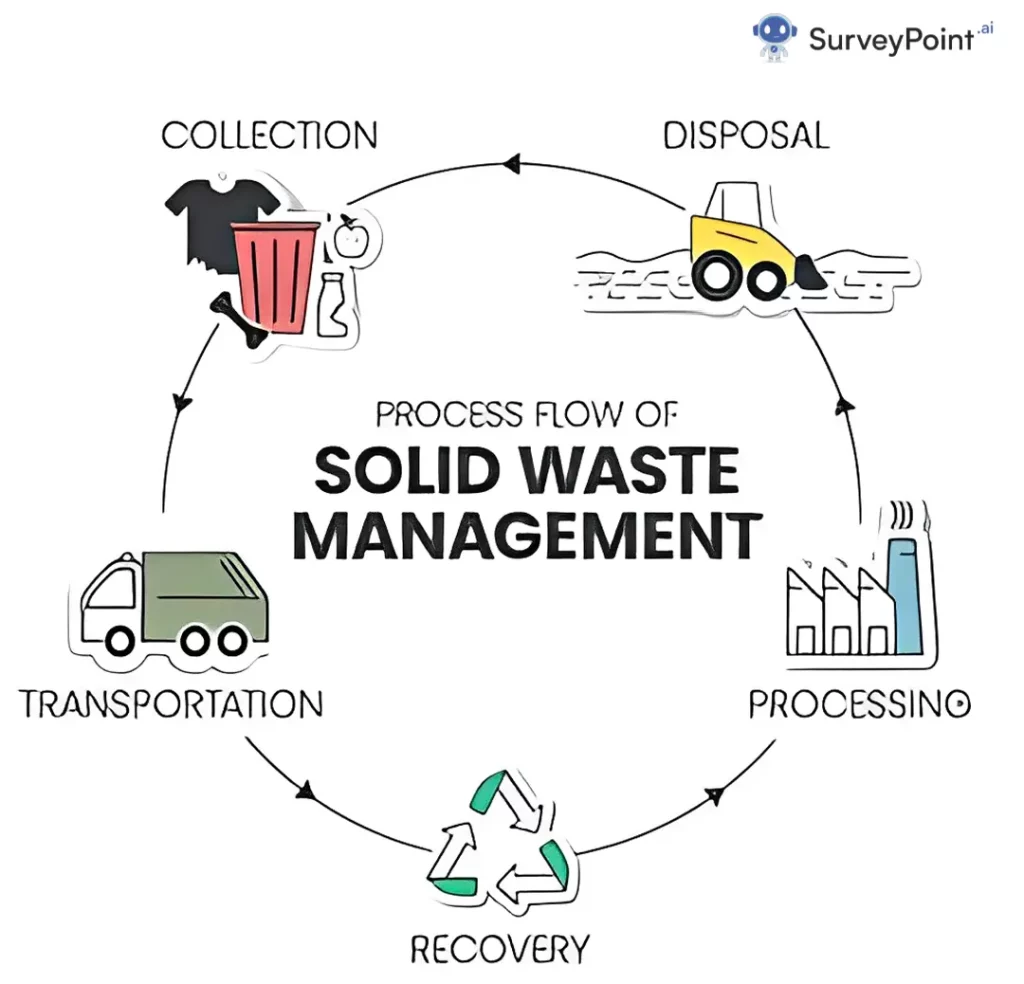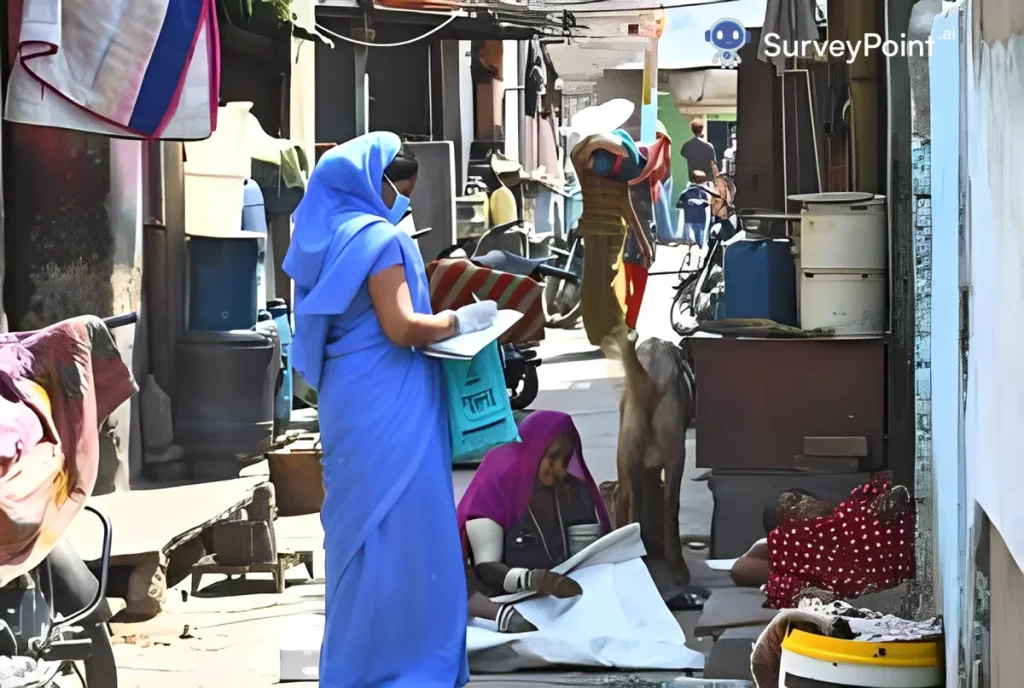

Crafting an impactful Solid Waste Management Questionnaire is a breeze with our expert guide. Learn essential tips, tricks, and FAQs for effective waste management surveys.
In today’s eco-conscious world, managing solid waste is paramount. Creating a survey that surprises and engages participants can be a game-changer. Let’s delve into the intricacies of developing a survey that not only gathers valuable data but also captivates your audience.
Table of Contents

Solid waste management involves the collection, disposal, and recycling of waste materials. A well-structured survey can provide insights into current practices and identify areas for improvement.
Discover the significance of understanding waste management practices. A thoughtful survey can uncover hidden challenges, highlight successes, and guide future waste management strategies.
Explore the essential elements that make a waste management survey impactful. From targeted questions to user-friendly formats, every detail counts.
Uncover practical tips to streamline your survey creation process. Learn how to balance depth and brevity, ensuring a quick yet comprehensive questionnaire.
Master the art of question construction. Engaging queries elicit more thoughtful responses, providing richer data for your solid waste management analysis.

Dive into the various survey formats available. From multiple-choice to open-ended questions, each format serves a unique purpose in gathering pertinent waste management information.
Enhance participant engagement by incorporating multimedia elements. From images to videos, a dynamic survey captures attention and provides a more immersive experience.
Learn the importance of robust data analysis. Transforming survey results into actionable insights is the key to effective solid waste management strategies.
You Must Read Best Excel Functions for Data Analysis: 12 Essential Formulas You Need to Know Data Analyst or Project Manager: Which One Has a Best Salary and Job Satisfaction in 2024? How to Become Certified Project Officer in 2024: The Ultimate Guide for Success
Identify potential pitfalls in survey design and execution. Addressing these challenges ensures a smoother data collection process and more accurate results.
Here are some example questions covering key areas to include:
1. What is your age range?
2. What is your highest level of education?
High school or below
Some college or technical training
Master’s degree or higher
3. How many people live in your household?
4. In what type of dwelling do you live?
Other (please specify)
Waste Generation and Disposal:
5. Approximately how much solid waste does your household generate per week?
Less than 1 bag
6. How do you generally dispose of your household waste?
Other (please specify)
7. Which of the following waste types do you most often recycle? (Select all that apply)
Paper and cardboard
Plastic bottles and containers
Glass bottles and jars
None of the above
8. Do you experience any difficulties with recycling in your area?
9. Do you currently compost any of your household waste?
10. If you don’t compost, would you be interested in starting if resources were available?
Awareness and Attitudes:
11. How concerned are you about the environmental impact of solid waste?
Not very concerned
Not concerned at all
12. In your opinion, what is the most important issue related to solid waste management?
Litter and pollution
Landfill capacity and disposal methods
Costs and efficiency of waste collection
Lack of recycling facilities and programs
Other (please specify)
13. Do you believe individuals have a responsibility to reduce their own waste generation?
14. How willing would you be to pay more for waste disposal services if it meant improved environmental benefits?
Not very willing
Not willing at all
15. In your opinion, what role should the government play in addressing solid waste management?
Take full responsibility and provide all services
Provide incentives and funding for programs
Set regulations and standards for recycling and disposal
Leave it to private companies and individual responsibility
Other (please specify)
Knowledge and Information:
16. Are you aware of any local recycling programs or drop-off centers?
Yes, very familiar
Not familiar at all
17. Where do you primarily get information about solid waste management and recycling? (Select all that apply)
Local government website or publications
Friends and family
Other (please specify)
18. Would you be interested in receiving more information about solid waste management practices and tips?
Preferences and Suggestions:
19. What changes would you like to see in your community’s waste management system? (Select all that apply)
More frequent curbside collection
More accessible recycling facilities
Expanded list of accepted recyclables
Educational campaigns and awareness programs
Public-private partnerships and initiatives
Other (please specify)
20. Would you support a local program that offered discounted fees for residents who compost or reduce their waste generation?
21. Would you be interested in participating in a community compost bin or collection program if it was available?
22. Do you find the current fees for waste disposal services in your area to be fair?
23. Do you feel there is enough public awareness about the importance of proper waste management?
24. Have you ever witnessed improper waste disposal in your community (e.g., littering, illegal dumping)?
25. If you witnessed improper waste disposal, would you be likely to report it to the authorities?
No, probably not
26. What do you think would be the most effective way to encourage public participation in waste reduction and recycling programs?
Financial incentives or rewards
Educational campaigns and outreach
Community events and initiatives
stricter regulations and enforcement
Other (please specify)
27. Do you feel optimistic about the future of solid waste management in your community?
Yes, very optimistic
28. Do you have any additional comments or suggestions regarding solid waste management in your area?
29. What is your major occupation?
30. Have you ever heard about solid waste management?
If yes, in what way? (One or more answers)
In public meeting
31. Have you ever been educated on proper waste disposal by the council?
32. What type of solid waste comes out from your household? (One or more answers)
Paper and carton
33. In what type of container do you collect waste? (One or more answers)
34. Do you know if there is a waste management center in Hambantota Municipality?
35. Are you satisfied with the waste management processes of Hambantota Solid Waste Management Center?
36. Have you ever heard about the importance of recycling?
37. If yes, do you agree with solid waste recycling?
38. If a recycling program were set up, would you be willing to separate materials into separate bags for collection purposes?
Thank you for participating in this questionnaire! Your feedback is valuable and will help us improve our understanding of community needs and preferences for waste management.
How do I ensure my survey covers all aspects of waste management?
Crafting a comprehensive survey involves identifying key waste management components. Consider waste types, disposal methods, and recycling practices.
Can I use online tools for creating my waste management survey?
Absolutely! Online survey tools offer user-friendly interfaces, making it easy to design, distribute, and analyze waste management surveys efficiently.
What role do participant demographics play in waste management surveys?
Understanding participant demographics provides contextual insights. Tailor questions to specific demographics to gather more nuanced data.
How can I encourage higher survey participation rates?
Incentivize participation by offering rewards or emphasizing the positive impact participants’ insights will have on improving waste management practices.
Are there regulations to consider when creating a waste management survey?
Yes, be aware of local regulations governing waste management. Ensure your survey aligns with legal requirements and ethical standards.
Can I use the survey results to implement immediate changes in waste management practices?
Absolutely! Quick analysis of survey data allows for prompt implementation of changes, demonstrating a commitment to continuous improvement.
Creating a surprising Solid Waste Management Questionnaire is an art that combines thoughtful design, strategic questioning, and innovative approaches. Embrace the power of surveys to revolutionize your solid waste management strategies.